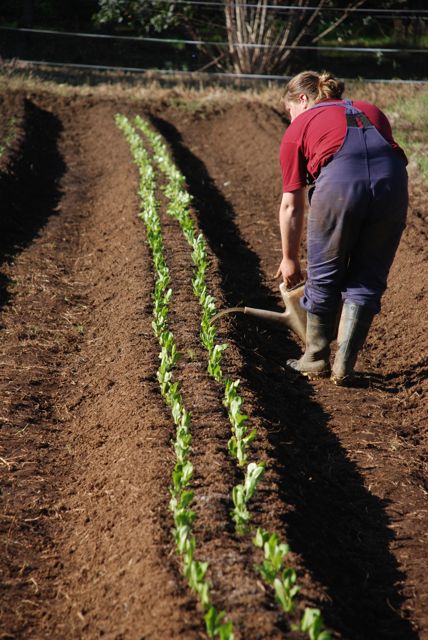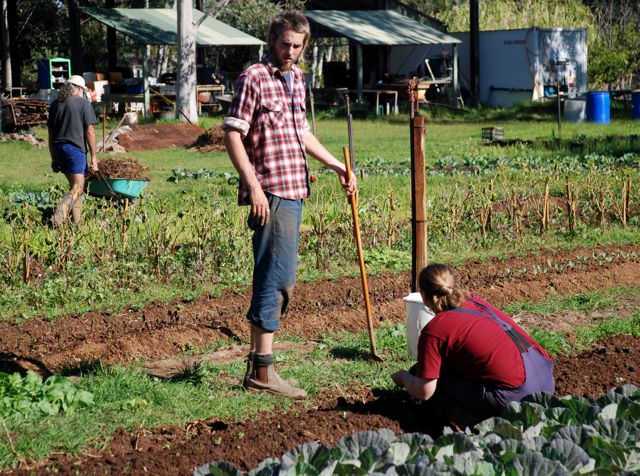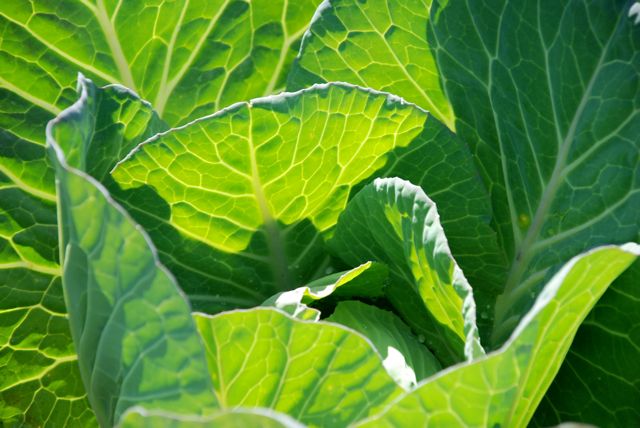As I left the south-west highway the feeling became much more rural. It is the middle of winter and all the rain has turned the fields a beautiful green. I’d driven for forty five minutes south-east of Fremantle. The sun was shining from a blue sky, and as I got out of the car to unlock the gate onto the property the bird song came from the trees around me.
I was visiting a small organic farm south of Armadale. My friend Ben was working here.
I rolled slowly up the track and parked my car under some gum trees. In front of me was a large area of vegetable beds running parallel to each other. Ben is a softly spoken and extremely tall guy. With his wilderness sage-style beard, Finnish ancestry and copy of the poems of John Keats tucked in his pocket, he is well attuned to the quiet rhythms of this farm. Ben and his two fellow workers were out in front of me, working the field. The area was bounded by trees on all sides, and also by the Wungong Brook on one side, and it had the feeling of a sheltered glade of… food. The greens, reds and purples of cabbages, silver beet and egg plants coloured the ground.
The earth around here is naturally more fertile than further east towards the coast as for millions of years rain has washed sediments down off the Darling Ranges onto this area near the base of the hills. Ben showed me the earth he’d helped create and it was dark and rich, perfect for growing vegetables. There are no pesticides here and the soil is alive. The insects aren’t all killed so the birds have food and I could see with my own eyes plenty of birds on the property. A kind of compost tea is poured onto the little seedlings by Ulli, a German student of organic farming.
I’m glad I visited Ben on the farm yesterday. Wendell Berry is famous for writing that ‘eating is an agricultural act’. But until I’d visited this garden on a sunny winter’s afternoon in August, I’d not known deep down what this meant. Every day I eat carrots and lettuces and spring onions that were put in the ground by people I know in a patch of earth I know. Now when I see the vegetables in the tray at the bottom of my fridge I don’t just see items that magically appeared for sale in a city shop. I see plants that grew in dark, rich soil in a quiet glade south-east of Fremantle. I know that Ben looked after these plants for the past few weeks as they grew. I close my eyes and instantly I can see a picture of the place my food comes from, and the people who grew it. Most of us are city folk and the water or the electricity that we use each day, comes from… well, where? We don’t think too much about it. We get used to a feeling of disconnection.
Unlike from other people’s farms, there are no clouds of pesticides drifting off this farm to poison people living along side. Instead of what you’ll find on most farms around Perth, monocultures and machines, here you find diversity and humans. But it isn’t just that these vegetables are better for people, insects and birds. It is more than that: I know the people that grow my food. I know the place where they grew. This pushes back the some of the undefined feelings of disconnection that you get from living your life in a city. In supporting this farm financially and knowing Ben and going to the farm, I have joined the dots and understand the ecology of my life a bit better.
Woolworth’s and Coles have 80 per cent of the retail food market in Australia. The farmer’s they buy from cut-corners by laying on the pesticides and getting rid of diversity of crops and getting rid of human labour. Keep cutting corners and keep making money, that’s the approach. Woolworth’s and Coles keep making huge yearly profits. So do the pesticide companies. But agriculture isn’t a business like any other. If you treat it like one, as you do every time you buy conventionally produced vegetables, then you’re voting for an ugly and damaging future.
It is time to let Coles and Woolworth’s wither on the vine.




